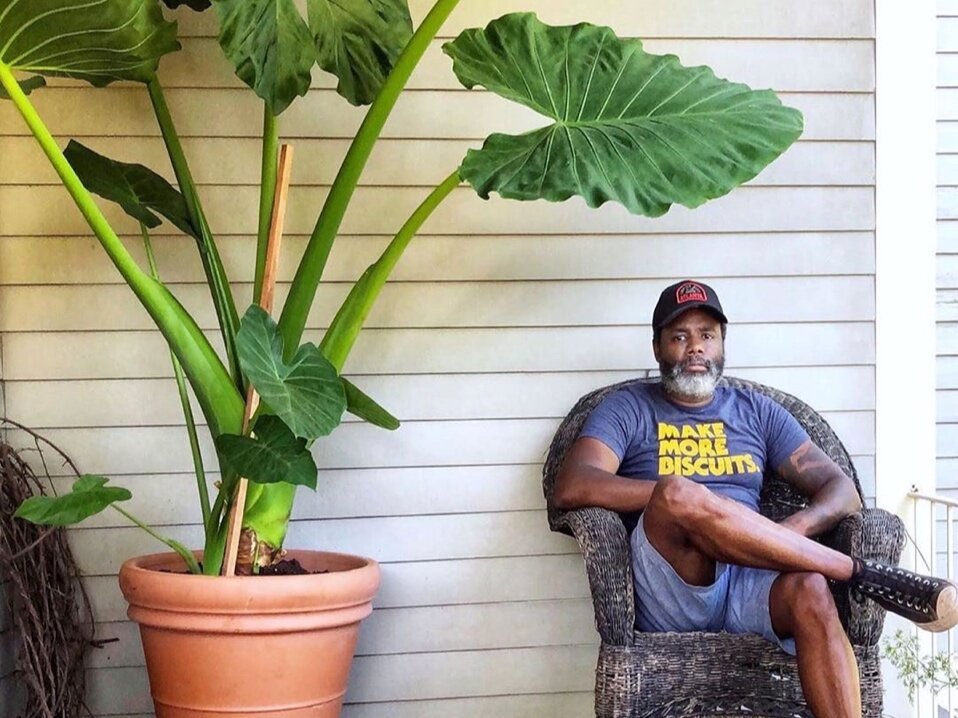When one of her white friends said he was going to miss Aunt Jemima’s smiling face on his breakfast table, singer-songwriter adia victoria wrote this response to the sticky-sweet problem of nostalgia.
Essay by adia victoria
There is little that leaps from white mouths on the issue of racism that surprises or even moves me. How could it? For 400 years my people have existed alongside white folks in the Deep South. The same excuses, evasions, and justifications of white supremacy that deeply informed their lives still give hue and color to mine.
I had known racists of the venomous set — the one who spits “nigger!” with such spittle-laced passion, you could imagine there’s a strange love, like one might love a passed down family heirloom, for the word. I knew well the ability of the preening millennial ally to rain mosquito bites of microaggressions onto folk of color.
At 7 years old, I took to heart my great-grandmother’s advice to “know your whites, sweetie.” It had been her way of teaching a young Black girl, whose body would grow in and on the Deep South, to manage her expectations and feel accordingly. It was the gift of protective armor that a Black woman born in Little Rock, Arkansas, in 1903 knew would be required.
This summer, however, over sweet tea, I was caught without my armor. An elderly white man I count among my closest friends admitted that he was saddened to see Aunt Jemima vanish from his pantry and polite popular culture. He labored to explain that Aunt Jemima’s ever-available, smiling Black face reminded him of his ever-available, ever-jovial Black nanny from his own Southern childhood. A silence sprung up between us. I felt my mind in hot pursuit of words my mouth failed to form. The tea was suddenly too sweet, too syrup-thick to swallow.
For the first time I had encountered a white person willing to admit what every Black person knows: racism persists because it is a comfort to white people. It is not a naturally occurring phenomena beyond the control of men. Racism exists because it feels good. It feels useful. More precisely put, racism, for many white people, feels familiar.
Aunt Jemima had achieved what any successful brand must do; she tapped into a vulnerability and a nostalgia and created an emotional connection with consumers that ties into the larger stories of their lives.
Don Draper, infamous advertising Svengali of “Mad Men,” explained the potential of this branded emotional manipulation, “Nostalgia — it’s delicate but potent ... It’s a twinge in your heart far more powerful than memory alone … It goes backwards, and forwards … it takes us to a place we ache to go again.”
The Union had only recently been sutured back together following the Civil War when Nancy Green, a formerly enslaved American, made her debut as the spokesmodel for the Aunt Jemima brand at the 1893 Chicago World’s Fair. White Americans were primed for a collective misremembering of both slavery and the Civil War, which measured in flesh and blood the nation’s addiction to Black subjugation. The call for collective amnesia was felt strongest in the South. The white elite class from bankers, politicians, and academics, to advertisers, and artists labored in concert to whitewash the legacy of slavery.
The goals of these men were twofold: maintaining and justifying a racialized other required for the existence of centered white identity, while simultaneously downplaying the violent sausage-making required to create the playground for the white imagination that would become the Jim Crow South. They needed a way for white Americans to feel strong emotions beautifully.
From their efforts bloomed a propaganda campaign where the Confederate states were recast as Dixie — an agrarian, bygone era peopled by high-mannered Southern gentlemen hell-bent on familial honor, genteel Southern belles, and “Happy Darkies” who perfumed the air with Negro spirituals and a sense of contentment and complacency with their station. Aunt Jemima, with her consumable smile and winking approval of Jim Crow social order, would be the sort of coddling psychological embrace white Americans would need in order to sop up the fragments of their own shattered post-antebellum identity. She would prove endlessly useful in ensuring white Americans that their nostalgia for Black oppression was righteous, justified, and sweet.
This emotional bond and yearning for an ideal and wholly fictionalized past ensnared not only my white friend, it also ensnared the psyche of some of the South’s sharpest minds. William Faulkner admitted in an interview, “If it came to fighting I’d fight for Mississippi against the United States even if it meant going out into the street and shooting Negroes.” Flannery O’ Connor put this strange addiction plainer still, confessing in a letter, “I’m an integrationist by principle & a segregationist by taste.”
For too many white Americans, against their better judgement, the trappings of white supremacy simply taste good. And feeding these good feelings was the Aunt Jemima brand. They could pour their taste for Black subjugation right over their pancakes. White supremacy became their daily bread and Black subjugation sweetened the aspects of their life deemed too shameful to face head on. White supremacy lives, still, belly-deep within the souls of white folks. The expectation and desire for Black women to comfort and coddle remains as inbred in their social cohesion now as it did when Nancy Green made her first appearance nearly 130 years ago.
My white friend’s face was the portrait of the confusion, complicity, and shame that I hope white Americans harbor. They are, perhaps, the true victims of white supremacy. Robbed of their ability to relate, empathize, and grow in their humanity, so much of their life is spent justifying and denying their own perceived superiority. It has left them psychologically split and diminished and totally reliant upon the buoying effects of the racialized “other.”
In “‘B’ Movie,” Gil Scott-Heron says:
The idea concerns the fact that this country wants nostalgia
They want to go back as far as they can
Even if it’s only as far as last week
Not to face now or tomorrow, but to face backwards
I know the work staring down white folks to confront, address, and exorcise their past will be generations long, much like excising kudzu that takes hold of a forest, or the toil required of my foremothers to keep white folks’ homes an immaculate and impossible clean, so deep is the work needed to uproot their perceived supremacy. But I also understand this is work that I cannot and will not do. My own Black liberation has freed me from cleaning up their mess, from sweetening their bread. I gave myself permission to let my white friend wrestle with the funk of his own fractured psyche. I cannot carry that burden for him. I will not work to dress up and play down his own internalized white supremacy.
The kitchen is closed.
adia victoria is a southern gothic blues poet, musician, poet and story teller from south carolina and based in nashville. her latest album “silences” was co-produced by the national’s aaron dessner and released in 2019 on canvasback records. when not making art, she dedicates her life to her family, silence, brooding in paris, and mothering her four cats bot, dot, nancy and Shelby Foote.






